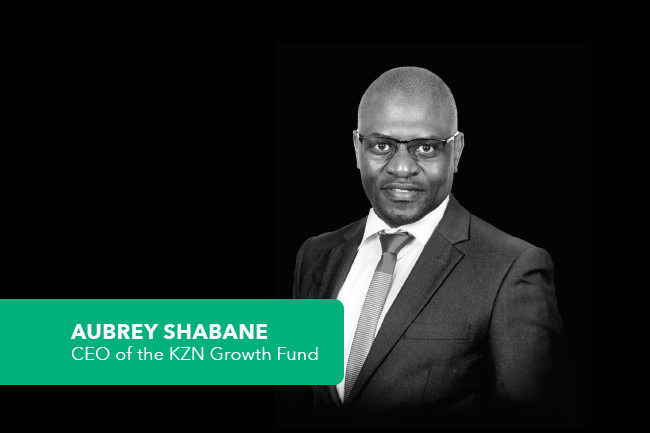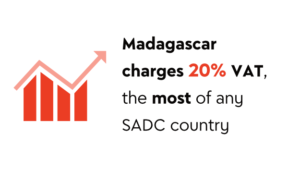When describing some of the well-known challenges in the current investment environment of South Africa, such as the high unemployment rate, lower production, skills shortages, limited access to funding and little to low capital investment, Aubrey Shabane, CEO of the KZN Growth Fund, remains optimistic. This is largely because of the great strides the company is making to unlock growth opportunities in the KwaZulu-Natal region.
The mandate of the KZN Growth Fund is to provide competitive and innovative financing for the private sector, and to ensure those projects promote BEE. ‘The fund’s principal objective is to steer sustainable economic development by financing medium- and large-scale infrastructure projects in the region,’ says Shabane. ‘By increasing investments in the province, we improve competitiveness of the regional economy, create employment opportunities and broaden the participation of historically disadvantaged individuals in the national economy.’
The KZN Growth Fund was established in 2008 as an initiative of the KZN government’s Department of Economic Development, Tourism and Environmental Affairs. It was seen as a solution to administer a unique public-private partnership that could unlock a funding gap. That gap has been fulfilled, from a single closed debt fund of ZAR362 million, provided by the KZN government, to a self-funded equity, derived from its investment income, that currently manages more than ZAR1.4 billion.
‘This growth is attributable to the innovation we employ in the sphere of finance,’ says Shabane. ‘Understanding that while the products we offer are not new, the developmental nature of them is, meaning they are preferential, personal and intimately designed for specific needs.’ The types of projects the KZN Growth Fund endorses are varied, ranging from logistics, manufacturing and healthcare to retail, provided there is transformation – that being they must be at least 51% black-owned, must offer opportunity for job creation and can contribute to the country’s GDP.
Business for Good is one such beneficiary. Support from the KZN Growth Fund has allowed it to bring together business, community and employees in co-ownership of a steel-fabrication business sited on land owned by the community of KwaXimba in Camperdown.
Another beneficiary, HBM-SA, runs the only operational condom factory in the country. Based at the Dube TradePort special economic zone, the factory, through its ZAR43 million support from the KZN Growth Fund, has the capacity to produce more than 500 million condoms per annum. ‘We have also funded some 80 doctors in their establishment of the only privately owned hospital in the Kwa-Dukuza area,’ says Shabane. It also has a women ownership of 25%.
Dark Fibre Africa has been enabled to install close to 8 000 km of dark fibre infrastructure nationwide with co-funding from the fund; and MPACT is collecting more than 450 000 tons of recyclable paper waste per annum from its now more than 1 700 informal workers.
There are many more examples, but what is obvious is that the KZN Growth Fund is not afraid to look at big projects. In fact it works within margins of a debt of ZAR25 million up to ZAR200 million, with equity of ZAR20 million to ZAR100 million. It’s a substantial amount – and it needs to be, says Shabane, ‘if we are to fulfil the gap created by what banks will not finance because of the pioneering nature of some of the start-up business proposals. These generally come with much higher risk than traditional private-sector financing institutions are prepared to manage, and yet they have a comparable default rate’.
The KZN Growth Fund works differently in that it is positioned as a partner rather than simply an external provider of finances, which Shabane confirms is exactly the feedback it is receiving from its beneficiaries. ‘We have aligned our interests, be that financial or otherwise, to our customers and strive towards meeting their goals, and ours, together. So effective has this been that we have delivered in excess of 15 000 jobs.
‘We have further been able to make significant inroads in attracting finance talent from outside the province. These, along with the attraction of other key niche skills required, cement stepping stones towards the creation of a sustainable financial sector in the province,’ says Shabane. ‘We are single-minded and focused on our core competencies. We embrace the acronym RAISE, which translates into respect, accountability, integrity, service, enterprising. This is what drives us. Those we support inspire us. And the successes we achieve fulfil us.’

















